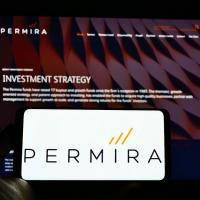Suzanne Beckett from Blick Rothenberg’s Financial Services team takes an in-depth look at partial exemption special methods and the benefits available to private equity firms.
PARTNER FEATURE
Suzanne Beckett (pictured) from Blick Rothenberg’s Financial Services team takes an in-depth look at partial exemption special methods and the benefits available to private equity firms.
Are private equity and venture capital groups missing out?
With the UK’s departure from the EU, many activities provided by UK financial services clients to businesses in the EU that were outside the scope of UK VAT and did not carry the right to input tax, now do carry the right to recover VAT on inputs. This will help reduce their quarterly VAT bill or even put them into a repayment position, helping cashflow. Most fund managers are already seeing the benefits of this in real time, but private equity and venture capital groups dealing with EU portfolios could be missing out on this new treatment unless they already have a partial exemption special method in place.
For the majority of private equity and venture capital groups, the main business activity is that of providing a mix of investment management, arrangement, and director services.
A standard structure includes a Manager, who acts as the investment manager to a General Partner (GP) in return for a management fee, and both entities form a VAT group. The GP, in turn, is the general partner of the Fund and receives a priority share of the Fund’s profits for dealing with its management.
As the GP is responsible for the management and operation of the Fund, for VAT purposes the activity of the Fund is also included within the activity of the VAT group, even though the entity itself is not listed in the registration. The sale of shares in the companies in which the Fund invests are considered exempt for VAT purposes if the purchaser is established in the UK and as such the group falls within the partial exemption regime.
Forming a VAT group is still beneficial, as it prevents output VAT leakage, with the Manager not needing to charge VAT on its management fee to the GP, which the GP wouldn’t typically be able recover, by virtue of its exempt trade.
VAT position
Under the standard partial exemption method, it’s unlikely the VAT group would be able to recover any input VAT, except in periods where a disposal has been made to purchasers established overseas, but there could be some scope to recover input VAT on an ongoing quarterly basis under a special method.
HM Revenue & Customs (HMRC) details the ‘two pot’ values-based partial exemption method in their (albeit retired) Control Note V1-37, which is regularly used and accepted by HMRC for private equity and venture capital groups.
The proposed mechanism splits the groups supplies between two pots: pot 1 relating to services to investee companies and pot 2 relating to investment activities. The former is treated as taxable supplies, and the latter undergoes further assessment.
To reflect the fact that realisations of investments in companies where the purchaser is established outside of the UK are outside the scope of VAT but carry the right to recover the underlying input VAT, the VAT incurred in relation to the investment activity of the fund and allocated to pot 2 can be recovered using a number of different methods; for example, a number of non-UK investment disposals vs total number of investment disposals apportionment.
Where there are no realisations in a given period, as will be the case in the early years of the fund life cycle, it may be possible to agree with HMRC that input VAT can be recovered in respect of pot 2 based on location of investments held; number of non-UK investments held vs total number of investments held. This is on the basis UK investments are more likely to be sold to purchasers based in the UK, US investments to purchasers located in the US, etc.
Before Brexit, it was only the sale of shares in investments outside of the UK and the EU which were deemed to be outside the scope of UK VAT with the right to recover input tax. It may be that your VAT group has considered a special method previously but, due to having investments solely in the UK and the EU, were not entitled to recover any input tax. With the investments in the EU now also giving a right to recover input tax if agreed with HMRC under a special method it may be worth carrying out a new assessment on whether a special method would now be beneficial for your business.
What you should do next
If you don’t currently have a partial exemption special method in place and think you may be able to benefit from applying for one, please contact us for further details.
In the first instance we can arrange a call with one of our specialists to discuss your business and its current VAT position, before advising on a proposed special method, if applicable. We can then calculate an estimated VAT saving under the proposed special method, and contact HMRC on your behalf to seek approval. If approved, we can also assist with implementation of the special method to your VAT workings, including setting up a calculation template.
Visit Blick Rothenberg’s Financial Services sector hub to find out more.






